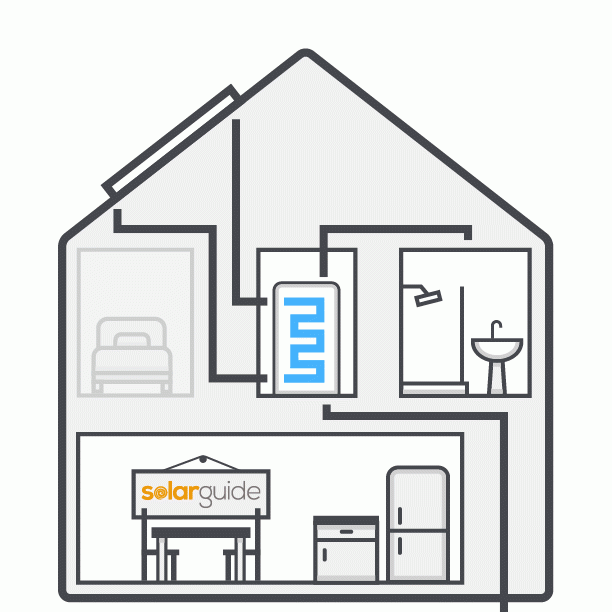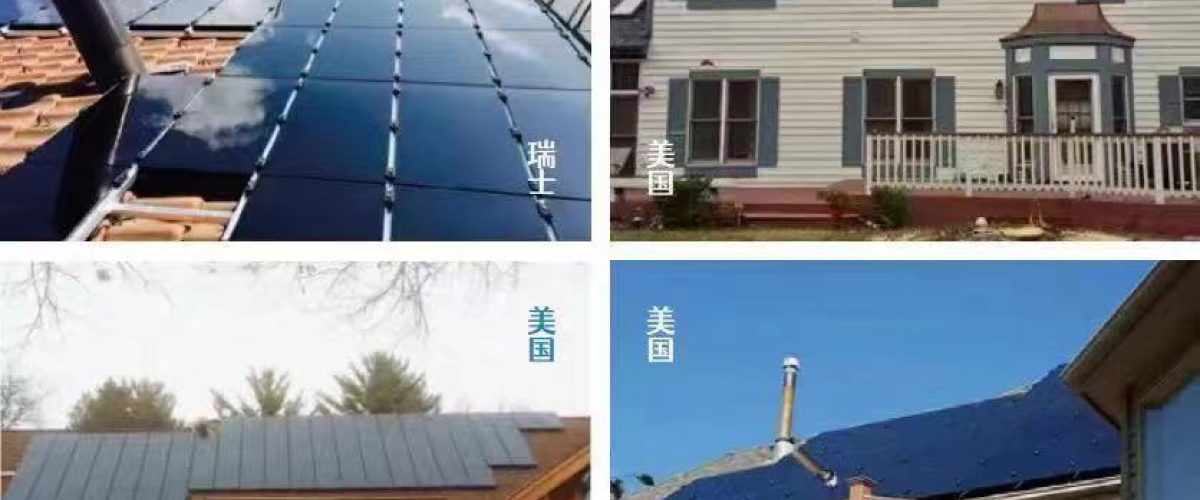[et_pb_section admin_label="section"]
[et_pb_row admin_label="row"]
[et_pb_column type="4_4"][et_pb_text admin_label="Text"]

A solar water heating system (solar thermal panels) uses the natural heat from the sun to heat water for your home. Solar thermal technology is an increasingly popular renewable alternative to traditional water heating systems, but is it the right choice for your home?
We've taken a look at the pros, cons, and cost of installing a solar water heating system to help you decide.
NOTICE: Under the government's Green Homes Grants scheme, between September 2020 and March 2021 you can apply for a grant to cover two-thirds of the cost of installing solar thermal panels. Click here for more information.
How does solar water heating work?
A solar water heating system uses solar thermal collectors, also known as solar thermal panels. These panels look a lot like solar PV panels and work in a similar way, i.e. they capture energy from the sun, but rather than converting the heat into electricity, solar thermal collectors use the energy to produce hot water.
The process is very simple:
- Solar thermal collectors are panels which are (usually) fitted onto your roof. The panels contain tiny tubes of water which are heated by the sun.
- This heated water can reach up to 90 degrees C. It is passed down into your home where the heat is transferred to water in a storage tank or cylinder via a coil.
- Pipes then transport this hot water for use in your home.

Most properties will need a boiler or electric immersion heater to provide a backup supply of hot water during times of peak demand, but you should be able to significantly reduce how often you need to use them so you can lower your heating costs and carbon emission.
Pros of solar thermal panels
- By providing up to 70% of a household's hot water through free energy from the sun a solar water heating system can reduce your annual energy bills.
- Solar water heating systems could earn you money for every unit of renewable energy you generate under the government's Renewable Heat Incentive (RHI) scheme.
- Using more renewable energy from the sun rather than buying fossil fuels like gas or oil from a supplier will reduce your carbon footprint.
- Other than the initial installation cost and a little maintenance, there are no running costs to budget for with a solar water heating system as it's free energy.
- Solar thermal systems are very low maintenance. Aside from an annual check by you, your system should only need professional servicing every 3-5 years.
Cons of solar thermal panels
- A solar thermal system is not a complete solution; you will still need a boiler or immersion heater to supply hot water through the winter and to supplement your supply on cloudy days.
- The cost of installing an average solar water heating system tends to fall between £3,000 – £5,000 which is a significant investment.
- Ideally solar thermal collectors need to be installed on a roof facing due south at a 20-50 degree angle from horizontal. However, they can work effectively when positioned between south east and south west. They can also be installed on the ground in some circumstances but any shade will reduce their effectiveness.
- Solar water heaters will not power electric showers or cold-fill dishwashers / washing machines.
- Solar water heating systems are not always compatible with Combi boilers as they heat water directly from the mains supply on demand; you will need to check with the manufacturer if your Combi boiler will accept pre-heated water.
- If you have a Regular heating system which is gravity fed you will need an extra valve or pump so the system can work effectively in winter when the heating is running at the same time.
- You will need to install a solar compatible water cylinder which is large enough to hold around 2 days of hot water.
[/et_pb_text][/et_pb_column]
[/et_pb_row]
[/et_pb_section]

